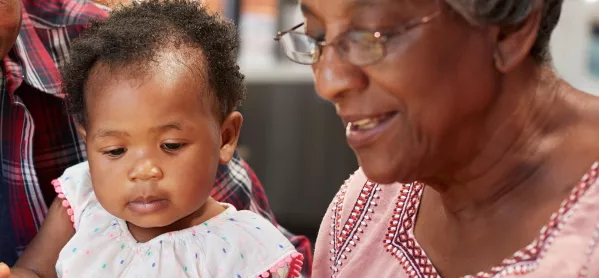
- Home
- ‘The Windrush descendants need our support in school’
‘The Windrush descendants need our support in school’

In December 2018, the Descendants Community Group held a Windrush tea party at the University of West London. The audience were thrilled to hear Caribbean music from Nostalgia, a notable West London steel band. Photo opportunities were in huge demand and the pride of the people was palpable. Speeches included one from a 93-year-old gentleman who well remembered his first days – straight off the Windrush and homeless in West London.
On 22 June 1948, the HMT Empire Windrush docked at Tilbury from Jamaica, carrying 600 or so British citizens of the Empire who had responded to the government’s appeal for much-needed labour to replace the hundreds of thousands of servicemen and 70,000 British civilians who died in the Second World War. Over the decades, they came in their thousands.
Initially, life was less agreeable than they had hoped, accommodation was difficult to obtain; racism burgeoned. In 1958, a room-to-let sign in a Southall house window read, "Only respectable people need apply. No coloured please."
But the tale I really want to tell concerns the children who in the decades that followed were, in Bernard Coard’s words, “made educationally subnormal by the British education system”. Coard was referring to the disproportionate number of West Indian children being placed in special schools, or as they were known then, schools for the "educationally subnormal". In 1970, immigrants were 17 percent of the school population and yet 34 per cent of ESN.
Low expectations for black children
On arrival in the local school, children were required to sit a test to "measure their IQ". These IQ tests had a middle-class bias, expressed in a form and style of English totally unfamiliar to a child from the Caribbean; tests for which they were not coached or even familiarised, containing cultural biases and linguistic differences. Skills and aptitudes and past learning were not taken into account. The IQ test was believed to be a comprehensive and holistic judgement.
Parents were unaware that they had the right of appeal against an ESN placement, assuming them to be a preparation for, and orientation to, the British system, and that children would be returned to mainstream schools when they’d achieved a level of preparedness. Few ever did. It’s not difficult to imagine how bright children, wrongly placed, became frustrated, disruptive, sullen and reluctant to engage with teachers who appeared hostile towards them. Especially where a child had experienced good academic schooling in the Caribbean. It’s not surprising that their hatred and violence was vented against a system that was crippling them.
Three, possibly four, generations on, their descendants should be thriving, but sadly this is not the case. In Ealing schools (where in 2018 black Caribbean children’s achievement was higher than the national and London average in that group), progress was generally below average; the gap was initially small but it increased across the school lifetime.
In 2018, at key stage 1, 47 per cent of black Caribbean children achieved the expected standard in reading, writing and maths, compared with 65 per cent of all children.
Some 35 per cent of black Caribbean children receiving free school meals (FSM) achieved the expected standard, slightly below the 39 per cent figure for white British children on FSM.
Furthermore, at KS4 50 per cent of black Caribbean children achieved a standard pass in 2018, compared with 69 per cent of all pupils. Among FSM pupils, 40 per cent of black Caribbean children achieved a standard pass, slightly below the 46 per cent figure for white British FSM children.
Progress 8 for Black caribbean pupils is below average (-0.1), particularly for boys (-0.5).
Recent research by LMKo analyses underachievement of black Caribbean children and suggests ways of combating it. There are few surprises.
It seems that enhancing pupils mental health; working with parents; access to high-quality early years provision; raising teachers’ expectations; recruiting a diverse workforce in schools; and encouraging peer support are the answers we’ve been searching for.
Coard summarised black children’s problems as: low expectations including of themselves, low motivation (after all, the cards are stacked against them) and low teacher expectations for them.
And his solutions? Recruit more black teachers, organise supplementary schools for all immigrant children and engage with parents positively. He might have added expunge racism from British society, but that is rather a big ask.
Groups like Descendants are filling the void with supplementary education in history, arts and science through experiential and didactic learning, enriching the intellectual and emotional life of all who share in it. Our task is to support them.
Dr Patricia Walker is a visiting professor at the University of West London
Register with Tes and you can read five free articles every month, plus you'll have access to our range of award-winning newsletters.
Keep reading for just £4.90 per month
You've reached your limit of free articles this month. Subscribe for £4.90 per month for three months and get:
- Unlimited access to all Tes magazine content
- Exclusive subscriber-only stories
- Award-winning email newsletters
You've reached your limit of free articles this month. Subscribe for £4.90 per month for three months and get:
- Unlimited access to all Tes magazine content
- Exclusive subscriber-only stories
- Award-winning email newsletters